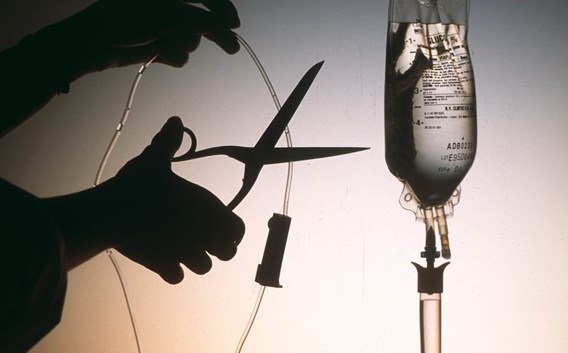For the first time since the legalisation of euthanasia [in the Netherlands] in 2002, a doctor may be prosecuted for not following the letter of the law, according to a report in the British Medical Journal.
The case, which was reported by BioEdge in February, concerned a 80-year-old woman with dementia who entered a nursing home because her husband could no longer care for her. When the woman was still lucid she expressed two wishes: (a) not to go into a “home for demented elderly” and (b) to be euthanised “when I myself find it the right time”. Only the second wish was honoured.
She was unhappy in the nursing home and wandered the corridors at night. After seven weeks of this, the nursing home doctor decided that she must be suffering unbearably. Based on her previous statements, the doctor decided that euthanasia was appropriate, although she no longer understood the meaning of the word.
With members of her family in attendance, the doctor approached to give her a lethal injection. The woman was agitated, so the doctor slipped a sedative into her coffee. This did not work, so she gave her an injection. With all these drugs, the woman dosed off.
But when the needle for the lethal injection appeared, she started to struggle. The doctor had to ask the family members to hold her down so that she could continue with the injection. The woman died soon afterwards.
The Regional Euthanasia Review Committee has decided that the nursing home doctor “did not act in accordance with the criteria of due diligence” as set down in the legislation. They described the living will as “ambiguous and contradictory” and insufficient to justify euthanasia.
PRO-LIFE COLLEGE STUDENT? LifeNews is looking for interns interested in writing, social media, or video creation. Contact us today.
Now Dutch public prosecutors have embarked upon a criminal investigation of the doctor’s actions, citing a “serious suspicion” that a criminal offence had been committed.
LifeNews Note: Michael Cook is editor of MercatorNet where this story appeared.








